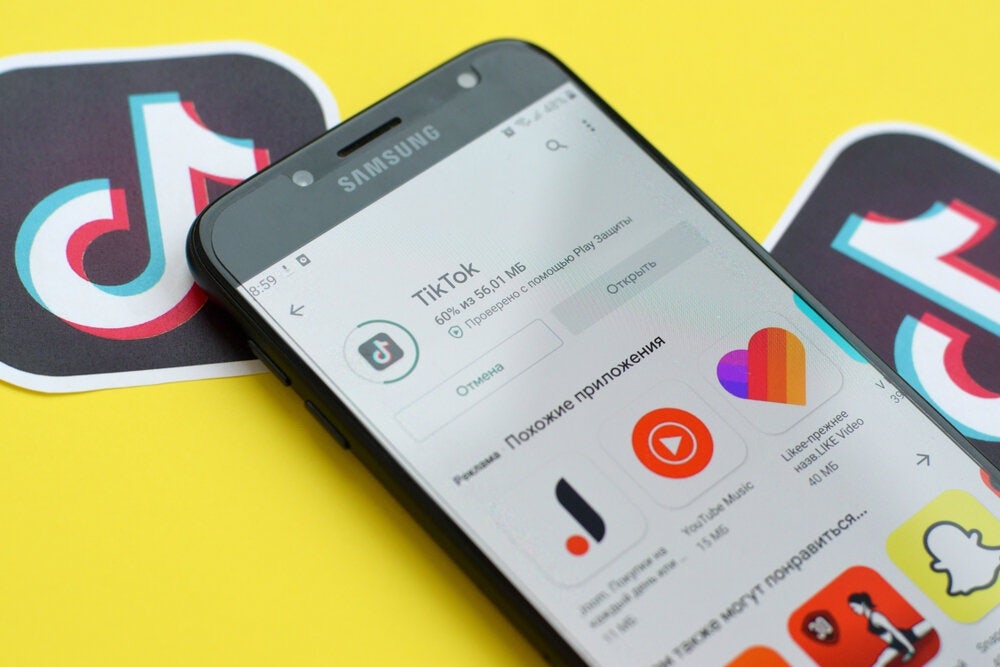
Having weathered a crusade by former President Trump to force the sale of TikTok’s U.S. operations to a consortium led by Oracle and Walmart (a deal that looks like it will be shelved for the foreseeable future), Bytedance appears to have a green light to make TikTok feel a lot more like Douyin, its Chinese counterpart.
Bytedance isn’t out of the weeds quite yet — the Wall Street Journal reported on the Biden administration’s plans to review whether the national security threat cited by the previous administration is significant enough to warrant a ban or other measures. But it appears that TikTok will continue to operate relatively unfettered (for the near term at least), presenting less of a concern for brands struggling to decide how to invest marketing budgets in the platform this year.
With the tentative go-ahead to proceed with business as usual, TikTok is ready to become a lot more full-featured. Having already expanded Douyin functions like sponsored challenges on TikTok over the course of 2020, Bytedance has moved on to introduce new affiliate marketing features for brands in 2021, which would allow more social commerce integration by letting video creators link to products, whether or not the content is sponsored. The company will also allow brands to showcase products on the app and boost e-commerce livestreaming — which TikTok teased late last year in a holiday collaboration with Walmart.
E-commerce livestreaming seems to have the most potential, particularly among Gen Z consumers, who generally have more free time available to spend watching content from influencers. And although competition is already fierce, with Facebook, Instagram, Snapchat, Twitch, and numerous other platforms vying for attention, TikTok has an advantage that can help it tap into the potential of the format on a global scale. “Culturally, TikTok is well placed for livestreamed commerce to capture the dissolving distinction between content and commerce because it doesn’t feel as polished as other platforms,” Jack Smyth, creative technology officer at WPP’s Mindshare, told the Financial Times.
A key point here is that e-commerce livestreaming (like many other features gradually being woven into TikTok) has long been available on Douyin, which is now moving to own the full content-commerce loop, from talent brokerage to Douyin Shops to payments. As such, the Chinese version of TikTok can serve as a sort of crystal ball, showing what Bytedance’s international ambitions for TikTok could entail (assuming of course, that governments don’t get in the way).
One addition that Bytedance could make on TikTok would be something akin to its “Star Map” influencer matchmaking service, which would help brands identify and connect with TikTokers for marketing campaigns. If Bytedance were to make Star Map a global feature, the company could diversify its revenue stream while undercutting the innumerable TikTok influencer marketing agencies that have cropped up in recent years.
In addition to giving access to influencers, Star Map also includes valuable back-end data on creators, incorporating “insights into their follower base, types of content, interaction rates, [and] a deep analysis of the account and their prices.” Offering such a service outside of China would be a smart move for Bytedance, putting the company in an even better position to compete with Facebook and Snapchat and giving brands greater confidence in using the platform.
Long-form content is another feature we’re likely to see TikTok import from Douyin before long. While TikTok recently started testing out videos of up to three minutes (or triple the current maximum), in China Douyin has already gotten into offering studio films, short drama series, and many other types of content, turning it into a more comprehensive source of entertainment. There are indications that TikTok may be headed this direction more quickly than some realize, with the upcoming full-length concert that Justin Bieber will play on the platform on February 14.
More of a longshot, given the regulatory challenges it would face in the United States and elsewhere, would be for TikTok to roll out a Douyin-style mobile payment system. In China, this is part of a broader competitive landscape emerging to challenge the dominance of Alipay and WeChat Pay, with Douyin’s goal to keep users on the app throughout the customer journey, from product discovery to payments, then encouraging them to share videos of the purchases to keep the cycle in motion.
While it’s impossible to know precisely what Bytedance’s broader monetization plans are for TikTok, it’s a fair assumption that the functionality gap between Douyin and TikTok will narrow in the years to come. As Douyin has already proven in China, it is possible to transition from the gateway drug of 15-second dance challenges to hours-long livestreams that fuse entertainment and commerce, and much more.
